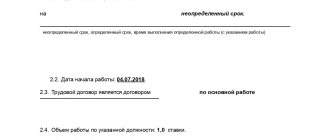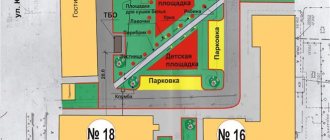Acquiring a plot of land is a fairly expensive undertaking. Many citizens are trying to expand the borders of their own land through unauthorized seizure. In this article we will tell you whether it is legal to use a plot of land without registering it as ownership, whether in such a situation it is possible to obtain a title document, what the penalties for illegal seizure of land are and what to do if your territory is seized by neighbors.
Legislation
Articles 35 and 36 of our Constitution legitimize the right of private property, including land, and the guarantee of its protection from encroachment by outsiders.
The owner of this type of property is given the opportunity to own, use for its intended purpose, if this does not violate the interests of other persons and organizations, and receive benefits. Law on land seizure: Chapter IX Art.
59-62 of the Land Code protects the rights of land owners and regulates the corresponding judicial procedure.
How to write a complaint against a neighbor on a plot of land to the administration
In order for your complaint against a neighbor to achieve a positive result, follow the procedure established by law for filing complaints. Start by writing a complaint to the lawbreaker. If it is justified, then most likely the neighbor will agree to a peaceful solution to the conflict.
If he ignores your appeal, then prepare documents for the local administration.
It is possible that then you will have to conduct a land survey. She will help you prove that you are right and further defend your interests in court.
Don't worry about the examination costs you incur. If the court finds your demands justified, then it will recover from the defendant the amount you spent on its implementation. Before going to court, try to resolve the issue with the local administration by filing a complaint there.
Kinds
Illegal possession of someone else's land property can be divided into the following types:
- Self-seizure of land or a section of it between private owners implies its willful alienation for personal use. For example: a neighbor moving a fence onto the territory of a nearby someone else’s plot or when the owners do not use their land for a long time.
- Arbitrary use of private land property by legal entities - placing their equipment on them or creating a dump for industrial waste. Neighboring land plots are subjected to such atrocities.
- Sometimes an individual, in order to obtain some benefit, tries to take over a share of land owned by an organization. But this doesn’t happen often; as a rule, legal entities fence off their territory and no one can get there without hindrance.
- Unauthorized seizure of land considered the property of the state. Russian citizens believe that they cannot face serious punishment for using such ownerless land for personal purposes.
Without the appropriate permits, conducting agricultural activities on these land shares is strictly prohibited!
Land protection
The definition of legal protection of land resources includes a system of measures enshrined in legislation that are aimed at ensuring the rational exploitation of lands, preserving and increasing their fertility, and protecting them from destruction and depletion.
These measures are applied comprehensively and are carried out with the aim of:
- preventing land degradation/destruction and other negative consequences of management by stimulating environmentally friendly production technologies;
- ensuring the restoration and improvement of agricultural areas that have been disturbed or degraded;
- creating rules for checking and accounting for the environmental status of resources.
The legislation provides for preventive and restoration measures and legal liability for violation of land legal standards.
Upholding rights
Guided by the provisions of Article 60 of the Land Code of the Russian Federation, restoration of violated prerogatives to a land plot is possible in the following cases:
- occupation of your property by others;
- cancellation of any instructions issued by executive legislative municipal authorities.
- or other actions that lead to the restriction of your rights.
All land disputes are resolved only in court. But, before the case is accepted for judicial proceedings, it is also possible to consider this dispute in an arbitration court.
To go to court, you need to prepare 3 copies of a statement of claim to claim your real estate , in particular, land from unlawful possession - for the defendant, the court and for yourself, a cadastral plan, documents confirming the legality of ownership.
During the consideration of claims, the following points are examined:
- study of title documents for the object;
- controversial issues about the boundaries of the site;
- whether the land plot was used for agricultural purposes;
- work with witness testimony.
No specific cliche has been developed regarding controversial land issues. Each claim is approached individually.
ATTENTION! Studying case materials on land claims is far from easy and only an experienced lawyer in the field of land relations can do it!
Special rules
In case of illegal seizure of territory for personal or public use by neighbors, the following rules apply:
- a complaint is written to the local government administration and the prosecutor's office;
- then a cadastral engineer is called to re-clarify the boundaries, who gives a conclusion about reducing your plot by a certain area and increasing the neighbor’s by the same number of acres;
- then going to court.
There are three types of liability:
- administrative (Article 7.1 of the Code of Administrative Offenses of the Russian Federation);
- criminal (Articles 60 and 76 of the Land Code of the Russian Federation);
- disciplinary (Article 75 of the Land Code) is imposed for improper performance of official duties.
In the event of criminal liability or the imposition of an administrative fine, the guilty person, in any case, compensates the victim for the harm caused and lost profits caused by his unlawful crime.
Land supervision
Based on Chapter XII of the Land Code in our country there are three types of control in the field of land relations:
- state land control is entrusted to the federal authorities (in particular, the Cadastral Chamber of the Russian Federation) to prevent, identify and suppress crimes in this area by municipalities, legal organizations, individual entrepreneurs and individuals;
- municipal land control performs a similar function to the first point, but one rank lower;
- public land control monitors the activities of land relations objects.
The coordinated interaction of all links in the above chain contributes to the correctness and legality in rather complex land relations between individual subjects of the country.
Responsibility for unauthorized seizure of land
Illegal occupation of public land or that owned by another person entails administrative, civil, and in some cases, criminal liability. If such a violation occurs, the damage caused to the captured land, as well as the presence of aggravating circumstances, is assessed.
Bringing to administrative liability for land seizure is regulated by Art. 7.1 Code of Administrative Offenses of the Russian Federation. According to the article, the penalty for land seizure is:
- for citizens – 1-1.5% of the cadastral value (at least 5,000 rubles) or up to 10,000 rubles;
- for officials - 1.5-2% of the cadastral value (at least 20,000 rubles) or up to 50,000 rubles;
- for organizations - 2-3% of the cadastral value (at least 100,000 rubles) or up to 200,000 rubles.
In addition, a fine will be charged for the misuse of a land plot (Article 8.8 of the Code of Administrative Offenses of the Russian Federation) and for the destruction of boundary signs (Article 7.2 of the Code of Administrative Offenses of the Russian Federation).
In addition to administrative, the court may impose criminal liability under Art. 330 of the Criminal Code of the Russian Federation “Arbitrariness”. Then for illegal seizure of land they can be imprisoned for up to 5 years.
The violator will need to demolish all buildings, if he erected them on the captured plot, and restore the land to its original condition. All these activities are carried out at the expense of the person who carried out the unauthorized seizure of land.
Registration of ownership
There are situations when a person begins to cultivate ownerless land, receives a certain profit from it, but has no legal rights to it.
How can you legally seize land? The Civil Code has Article 234, which states that a person (individual or legal), continuously cultivating land plots for fifteen years, has the legal opportunity to register this plot as personal property. This is called "consumer statute of limitations."
What conditions must be met in order to obtain full ownership of an ownerless land area:
- period of use is at least 15 years;
- continuous method of use, succession and inheritance are impossible here;
- the purpose of the loan is agricultural only;
- all activities were open so that the legal owner could challenge this fact;
- presence of supporting evidence from third parties;
- evidence of ignorance of the legal owner.
Next, the “captor” must follow the following instructions:
- apply to the Cadastral Chamber with an application, to which is attached evidence of the use of a “nobody’s” land plot: receipts for payment of the necessary needs, confirmation of neighbors, etc.;
- work with a specially created commission to measure, evaluate and enter all data into the master plan;
- The final stage is the repurchase of the loan at market value.
After a positive result of the commission’s work, you can go to register a share in the property. If the use of a land plot is recognized as legal, registration will take place under a donation agreement.
ATTENTION! The presence of buildings on the area can complicate the matter; according to the norms of the Land Code, they need to be demolished, and then contact the registry office. Legalization of rights in this case is possible only by a positive court decision.
Documents required for registration of such a plot:
- a statement by the current user of his intention to legitimize his actions;
- a receipt confirming payment of a fine for illegal possession of a memory;
- extract from Rosreestr indicating the cadastral number of the plot;
- a message from Rosreestr that the applicant does not have any official privileges for this site;
- information about non-use by the legal owner of the land until its seizure;
- written decision of the visiting commission;
- information about confirmed boundaries of the allotment.
Registration of all papers does not exceed 30 days!
Neighbors have seized my land: what should I do?
It may happen that your land is seized by your neighbors without permission. The procedure depends on whether the site has clearly defined boundaries.
If a neighbor has captured part of the land with boundaries established by demarcation, the algorithm will be as follows.
- Set turning points on the site in accordance with the data from the state register. To do this, you will need to contact a cadastral engineer.
- Try to come to an agreement with your neighbors using survey data.
- If neighbors refuse to leave the seized land plot, it is necessary to go to court and demand restoration of the land limits under clause 2, art. 62 of the Land Code of the Russian Federation.
The court will need to provide a document confirming ownership of the land plot, a cadastral passport and all papers related to the surveying of the disputed territory.
If neighbors have seized a plot of land, but there are no clearly established boundaries, it is necessary to urgently carry out the land surveying procedure. Next, you can also try to negotiate with your neighbors peacefully. If negotiations do not bring results, go to court.
Free legal advice online
The involvement of lawyers in legal disputes is due to the need to fully protect the personal interests of citizens. As practice shows, citizens avoid legal assistance in order to save money, but in practice this is associated with high costs. Even citizens with a lawyer's education do not always keep up with current changes in legislation, so it would be advisable to consult a qualified specialist.
The convenience is that consultation with a lawyer is free and online.
Where and how to get free legal advice?
is provided throughout the Russian Federation. Citizens, residents of the state, as well as non-residents of the country who temporarily reside in the Russian Federation can take advantage of the support.
Moreover, lawyers can advise interested parties outside Russia, but only within the framework of domestic legislation. Legal advice is provided free of charge online around the clock, regardless of weekends and holidays.
The response time from specialists on the website is up to 15 minutes. There is no need to register on the Internet portal and you can send a personal appeal anonymously.
Plot with construction
It often happens when this or that building is erected on the territory. How to squat a building site?
- a citizen orders a land plan;
- draws up a plan that clearly indicates the location of the building;
- a building permit is requested;
- a technical plan is drawn up;
- An extract from the Unified State Register is taken.
In case of refusal or controversial issues, the issue of legalizing the building goes to court. Without permitting documents, any object, even a small gazebo, will have to be demolished.
Judicial resolution of the conflict
The claims are set out in as much detail as possible in the application and supported by evidence.
They can serve as:
- boundary plan indicating the exact boundaries of the allotment and the disputed territory;
- confirmation of receipt of demands to leave the site, written refusal of the defendant;
- photos and video materials proving illegal activities or the presence of buildings on the territory.
The claim may include a requirement to compensate for losses (actually incurred expenses) and lost profits. So, if the actions of the defendant led to the impoverishment of the land, or to the impossibility of conducting permitted activities on it (it is impossible to build a house because there is not enough space due to the presence of a neighboring property on the territory), the plaintiff calculates the amount of lost profits based on the circumstances.
Usually the judge rules in favor of the plaintiff if he can convincingly prove the fact of illegal seizure.









